"It has never felt so relevant to talk about technology development and democracy"
29-30 May, the third Future of Democracy Summit was held. 150 leaders gathered at Lindholmen Science Park to discuss modernization, new technology and democracy. Here are project manager Karin Hübinette's reflections with a week's perspective.
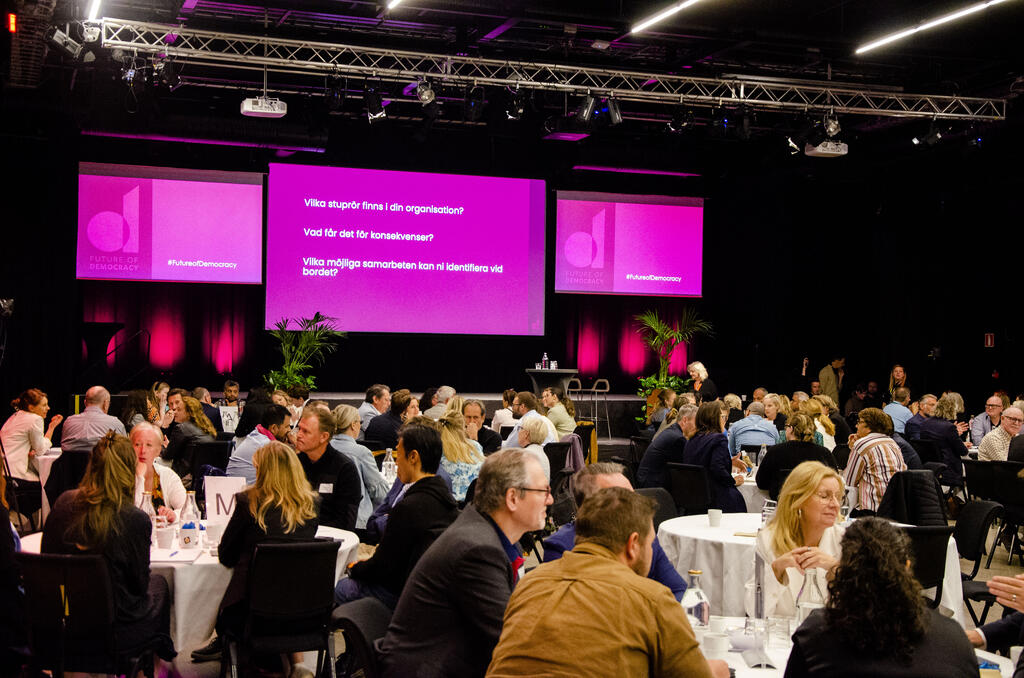
What are the dominant thoughts?
- That the commitment of the participants was once again so great! It is a powerful feeling to see and hear a large conference hall filled with lively conversations and to know that everyone is united by a great commitment to society and a desire to contribute to a common, good future.
What were the differences this summit compared to the 2021 and 2022 summits? New technology – not least the rapid rise of AI – and democracy are issues whose relevance has only increased. How did it affect?
- We gathered in a small group in November and I then raised the question: Will you want to discuss AI and democracy one more time? Then came Chat-GPT and stunned the world. AI has gone from being a question for the most knowledgeable to becoming a kitchen table question in the last six months. It has never felt so relevant to talk about technology development and democracy. Our starting point was also the twin transition, i.e. both the green and the digital transition. With several up-to-date and worrying climate reports in the past six months, it was natural to raise both perspectives, not least because technology development is a prerequisite for coping with climate change.
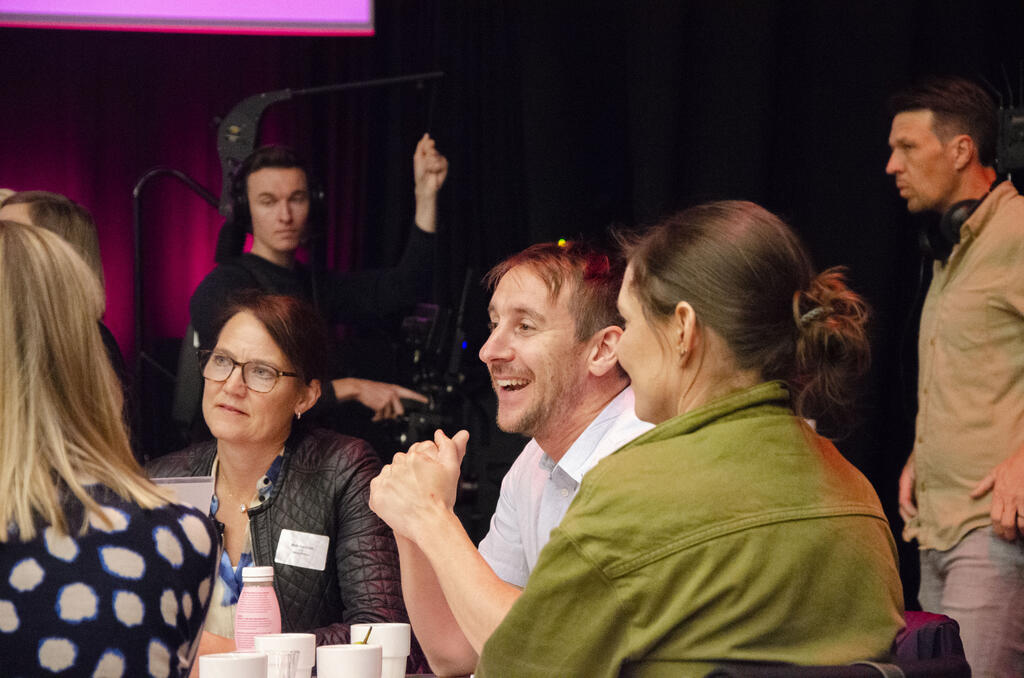
Do you feel that the meeting had distinct highlights? Themes that sparked extra commitment and energy?
- I have heard in the comments afterwards that many people got attached to one of our international guests, James Arbib from the think tank RethinkX. His starting point was that the changes we are facing, driven not least by climate change, already have the necessary technical solutions, but that it requires a new approach, not least from the world's leaders who will challenge the entire global economic system where the starting point needs to be decentralization, "save people, not industries" was the message. Otherwise, the clearest red thread concerned the need for a democratic perspective on AI development.
Something you think should have been given more space in the program?
- You want everything to have more space, more time for conversation and interaction between participants, more perspectives and speakers, it's a difficult balancing act, but we constantly think about the mix, how it will be as good as possible.
What is the response so far?
- Very nice! Again, the cross-sector conversations seem to be what the participants appreciate the most. The opportunity to discuss pressing social issues with people you don't usually meet.
Any type of feedback that stands out compared to before?
- Many want to go from words to action, that's quite clear. There were proposals from several quarters to create some kind of hackathon, "we hack the public sector" as someone put it. I feel the same, that now going from words to some form of concrete action feels like a logical next step. Then you have to have understanding and respect for the fact that reality looks very different in different sectors of society. Some work with continuous, concrete change work, perhaps driving the innovation of services and products themselves, others are governed by strict regulations and are publicly financed with all that entails in terms of delivery requirements according to clear frameworks. But based on the response we received, the desire for more concreteness seems to be consistent, whether you work in the private or public sector.
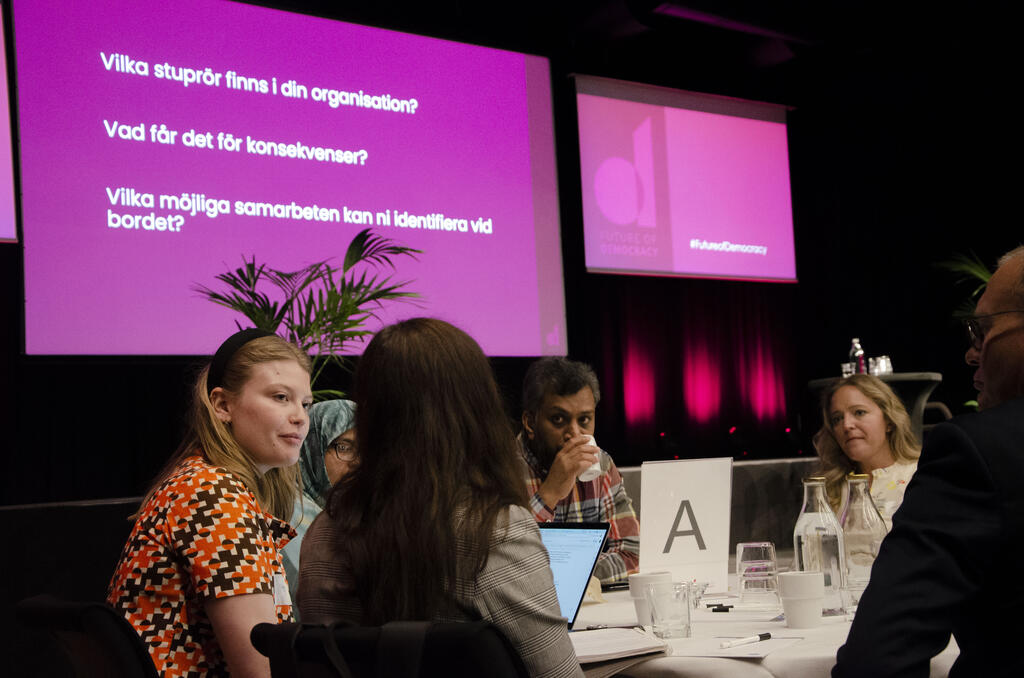
How many attended? - Approximately 150 leaders were present during the meeting.
What do you see that can be improved and renewed in the concept going forward?
- Right now I'm thinking a lot about what should be the next step. There is something wonderful and evidently appreciated in these large, mixed meetings, but it is not certain that this particular form is the only one that can work. Should we appear in a smaller format, but on more occasions? Would more targeted meetings to certain sectors be better and if so, how do we ensure that there is still a breadth of perspectives represented? Another challenge is how we maintain engagement between the various events, regardless of what they are. Yes, there's a lot to think about, but it's a nice challenge considering how much commitment we've already managed to arouse and that we actually enable contacts directly between leaders, across all of society's culverts.
What will be the next public activity for Future of Democracy?
- We are planning a slightly more social meeting this autumn and then the Future of Democracy will take place during the Internet days, then with a focus on AI, education and politics.
After every summit, which is an intense event, you have been asked how the night's sleep was after the last day. How was the sleep this time?
- You fall asleep undisturbed, that's probably the best description!
ABC about Future of Democracy
- The idea was born within Media & Democracy and the initiative has been developed and run by AI Sweden and Media & Democracy in collaboration.
- The aim is to have a cross-sectoral conversation about how digitalisation, technological transformation and AI can be used in a democratically sustainable way.
- Three summits - so-called Summits - have been arranged: at Lindholmen Science Park in Gothenburg 20-21 October 2021, in Helsingborg 13 June 2022 in connection with H22 City Expo and at Lindholmen Science Park 29-30 June 2023.
- Website: futureofdemocracy.se
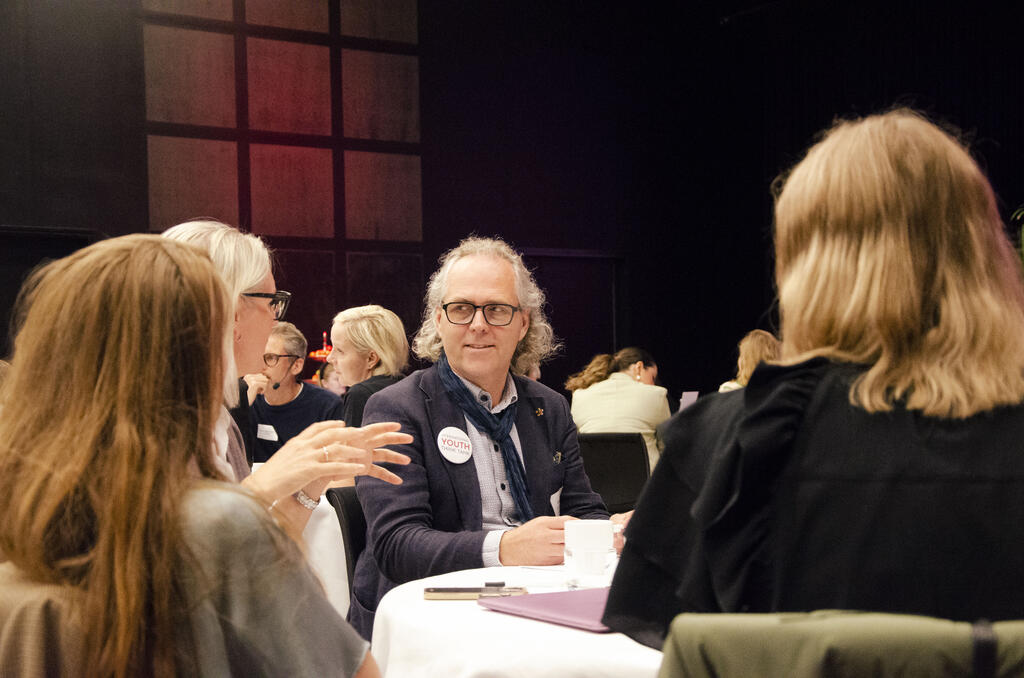
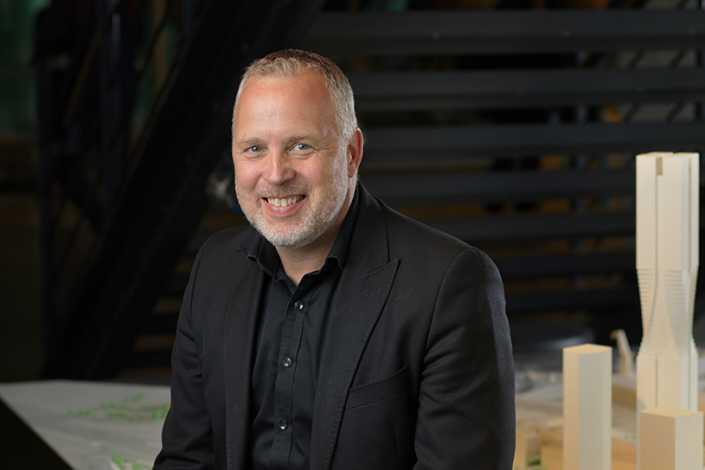
Martin Holmberg


